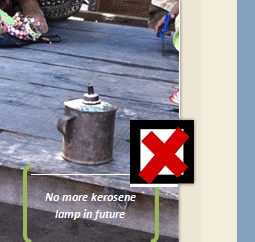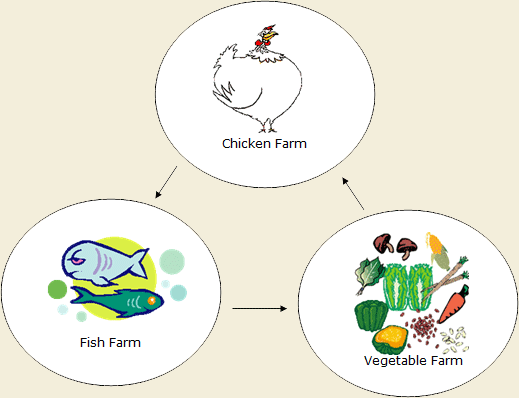Sustainable Agricultural Project in rural Cambodia
Sustainable Agricultural Project in rural Cambodia
Overview:
The heart of our community service project is in the village schools located in the rural farmland of Cambodia. With a changing world where globalization, technology and intellectual capitalization dominate and recreate a new world order, these villages are facing the pressures of modern society where education is seen as an important asset.
Parents are encouraging rural children to compete in gaining elementary education but in an area deprived of proper infrastructure, the lack of opportunity in being self- sufficient is hindering them from realizing their dream of gaining a proper education. Many of the students, originating from poor farming communities in the region, congregate in a main school under one roof to learn to read & write and simple Arithmetic. Most of them walk to school from their villages, kilometers away, with almost nothing to eat due to poverty and the long travelling distance home. Some who are lucky enough to live near the school does not necessarily mean better opportunity for the parents are probably away in the fields working.
For the unlucky many, the location of the school distant from the village means an unpredicted source of proper nutritional diet for these children. The children have limited money from their parents and once their money is depleted, they have no choice but to either depend on the charity of fellow students and teachers or go hungry for the day during school hours. After school, these children will either gather food in the rice fields or canals or cook their own meal with whatever raw food they can obtain. With the pressures of education due to homework and single session school hours as well as unavailability of land access, the children do not have any opportunity to grow and manage their own vegetable plot or farm as they are not from that village where the school is located. .
While some urban schools are supported by local charity and welfare organizations and have the endorsement of the government for proper school facility, the children lacks proper nutritional diet for them to excel in their studies. Being a school of poor people where not every Cambodian is granted the same welfare entitlement by the government, the school relies mainly on funds and donations from the local non-governmental organizations and bodies. While basic infrastructure in the village school is already established, some basic necessities especially food are still sometimes, seasonally, lacking.
Purpose of the Sustainable Agricultural Project:
This project proposal hopes to persuade non-government and charitable groups to consider providing funds with strong potential opportunity for community involvement in the cost of construction of a sustainable agricultural project involving a fish farm, chicken farm and vegetable garden.
Objectives of the Sustainable Agricultural Project:
1. To provide basic healthy nutrition for the large number of students who otherwise depend on foraging of food in the village
2. To encourage self-sufficiency and sustenance in the community, hence eliminating the need to depend on unpredictable external forces for food necessities
3. To promote and improve the nutritional habits of the students whose diet is based on a solely carbohydrates source
4. To create opportunity for management skill development and responsibility for the students who will take up the task of managing and caring for the project as ultimate stakeholders and beneficiaries
5. To provide opportunity for volunteer groups to understand, learn and build a sense of humility and respect through working along side their less privileged counterparts

Infrastructure:
The construction shall involve a chicken – rearing facility with an area of 5m x 4m x 1m, an organic farm within the compound of the school compound (area of 4m x 4m) and a fish pond with an area of 5m x 9m.
Budget:
The expected cost in funding the entire project is USD1300
Details of construction cost:
|
Items
|
USD
|
|
Chicken rearing facility
- Construction materials
- Chicks
- Feed packets
- Nettings
- Troughs
- Vaccine and medicine
|
250
|
|
Vegetable farm (seeds)
|
100
|
|
Transportation, Fuel
|
50
|
|
Fish pond
- Waterproofing
- Water treatment
- Fish
|
300
|
|
Tools, Equipment purchase
|
100
|
|
Total
|
800
|
Period of construction:
It is proposed that a suitable and appropriate period shall be set up between November - June.
Administrative Authorities:
The following authorities shall be responsible for the administration of the various stages of projects:
- School committee
- Learning Journeys (Cambodia) Foundation
- Volunteer and Sponsoring group
Expected Result:
Being a community with an agricultural background, it is logical that the community achieves a level of self-sufficiency in sustaining their livelihood. In the changing world of technology and globalization, the delicate village system is quickly deteriorating socially and morally. Most importantly, it is our duty to protect the young generation from the adversity of society and help them to be resilient in meeting the challenges of a changing world.
With this project, it will encourage the students to take that first step in meeting the objectives set.


